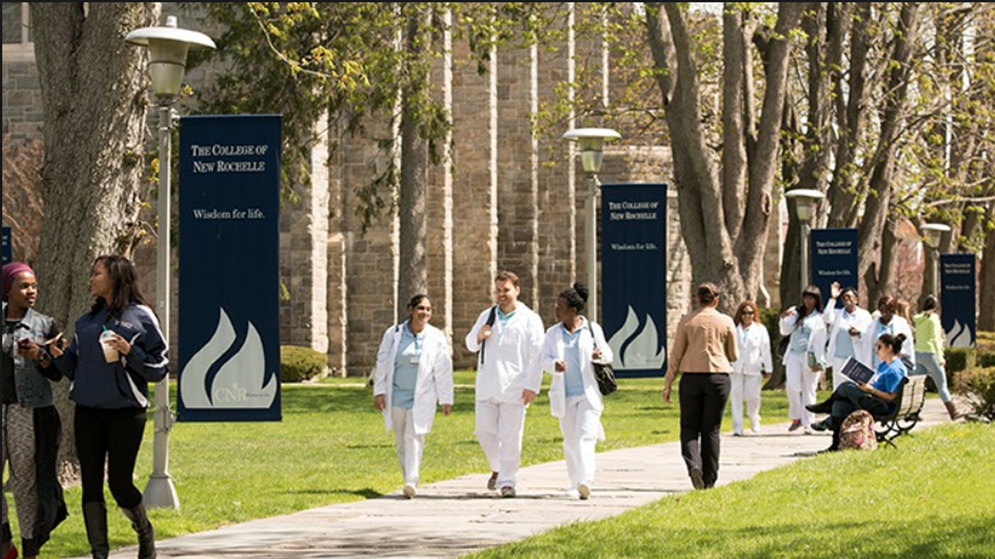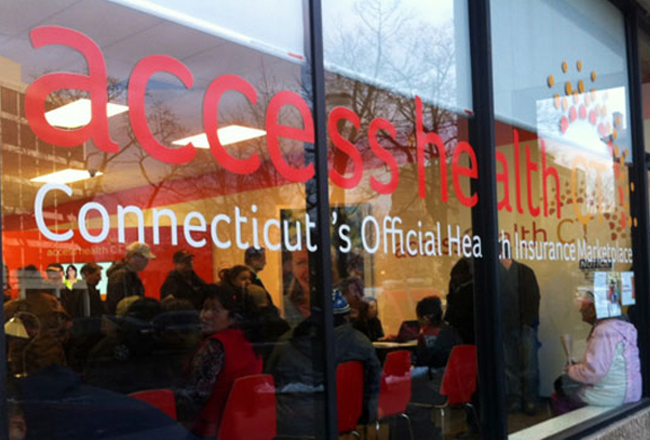It”™s been more than a year since The College of New Rochelle announced that it was in the midst of a major financial crisis that threatened to close the doors of the century-old institution. And while there are a number of challenges ahead, school officials remain optimistic about the future.
“I cannot overstate how much so many have done in so little time to literally save this school,” interim President Dorothy A. Escribano said in a statement on the school”™s website.
In October 2016, college trustees announced that a probe into the school”™s finances had found $20 million in unpaid payroll taxes spanning eight quarters since 2014 and an additional $11.2 million in debts and liabilities.
“The scope and depth of the problems left even the most optimistic among us wondering if our 113-year-old school could find a way to survive,” Escribano said in a statement.
 Following that discovery, the college appointed a special committee to oversee an investigation. The school named a chief restructuring officer from the New York City accounting firm Grassi and Associates to manage the college”™s finances. Trustees also hired a forensic accountant, PKF O”™Connor Davies, and the law firm Pepper Hamilton LLP to conduct the investigation.
Following that discovery, the college appointed a special committee to oversee an investigation. The school named a chief restructuring officer from the New York City accounting firm Grassi and Associates to manage the college”™s finances. Trustees also hired a forensic accountant, PKF O”™Connor Davies, and the law firm Pepper Hamilton LLP to conduct the investigation.
College President Judith Huntington stepped down amid the investigation last fall and trustees named Escribano, the provost and senior vice president for academic affairs, as interim president.
About 70 employees have been laid off since November 2016, including 10 tenured faculty, the school said, which it deemed necessary in order for the college to continue. However, those layoffs led to a pair of lawsuits filed earlier this fall.
Fourteen faculty members, along with the college senate and council of faculty, filed a lawsuit in October, alleging breach of contract after the college failed to file a declaration of financial exigency. Financial exigency recognizes an imminent financial crisis that threatens the survival of the institution as a whole that cannot be alleviated by less drastic means.
The lawsuit, which names Escribano and the board of trustees as defendants along with the college, states that by neglecting to declare financial exigency prior to terminating the faculty, the school violated its own handbook.
The faculty members, who were laid off in June, are seeking damages, including loss of salary, benefits and damage to their professional reputations, along with legal fees.
“The board has stated clearly and consistently that it regrets the need to lay off even one person, but we did what was necessary for the viability of the college and the continued quality education of our students,” Gwen Adolph, chair of the college”™s board of trustees, said in a statement. “We are disappointed about the lawsuit and the resources that will be required to defend it, but we are not discouraged.”
A second lawsuit alleging breach of contract involving former employee Veronie Lawrence, who worked for the college as a campus director for three years and was let go during the second round of layoffs, was filed in Westchester County Court earlier this month.
Though the college declined to comment further on any pending litigation, officials said they do not expect any additional layoffs at this time.
Other steps the school has taken since the discovery of the financial problems included the auctioning of five college-owned, single-family homes and a restructuring of its finance department. The college also negotiated tentative settlements with the Internal Revenue Service and the State Department of Taxation and Finance on the repayment of unpaid payroll taxes. A national search for a permanent replacement for Escribano is underway and the school aims to have the position filled in the coming year.
Officials believe that the key to the college”™s recovery lies in two key factors: successful enrollment numbers and fundraising efforts, both areas they feel optimistic about. Enrollment remains strong at 3,200 students, the school said in a statement, and a recent round of fundraising proved largely successful thanks to an anonymous $5 million donation.
“While more hard work remains to be done, we are very hopeful that the steps that we have taken have us on the road to long-term stability,” Escribano said in a statement.
Founded by the Ursuline Sisters in 1904, The College of New Rochelle includes four schools: the School of Arts & Sciences, the School of Nursing and Health Care Professions, the Graduate School and the School of New Resources for adult learners. In addition to its main campus in New Rochelle, it operates five satellite campuses in the New York City boroughs. The former women”™s college became fully coeducational in 2015.

















